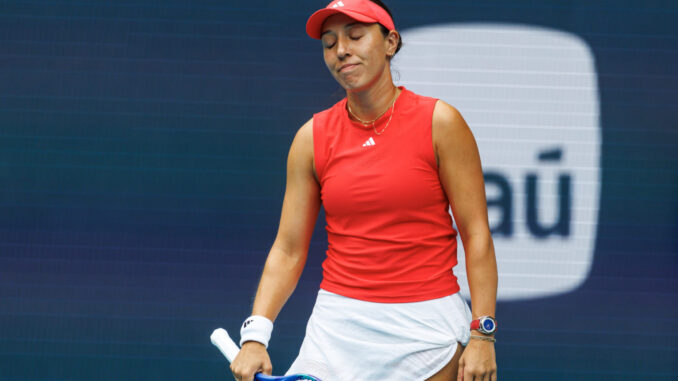
Jessica Pegula, the top-seeded American tennis star, clawed her way into her first-ever Charleston Open final this Saturday, but the journey was anything but smooth. Facing off against Russia’s Ekaterina Alexandrova in a rollercoaster semifinal, Pegula emerged victorious with a 6-2, 2-6, 7-5 scoreline, a match that tested her resilience as much as her skill. It wasn’t just Alexandrova’s relentless groundstrokes or the clay court’s unforgiving bounce that pushed Pegula to her limits—there was something deeper, something personal she had to wrestle with under the South Carolina sun. “I’m one that, like I can’t get too emotionally like into a match, because it really drains me,” she confessed post-match, her words revealing a rare glimpse into the mental tightrope she walks every time she steps onto the court.
The Charleston Open, a WTA 500 event and the largest women’s-only tournament in North America, has been a proving ground for Pegula over the years. She’s reached the semifinals here three times running, but this year marked a breakthrough—her first shot at the title. The road to the final began with a commanding first set against Alexandrova, where Pegula raced to a 5-0 lead, her crisp shot-making leaving the Russian scrambling. But the tide turned in the second set as Alexandrova found her rhythm, breaking Pegula’s serve and leveling the match with a 6-2 score. The decider was a nail-biter—Pegula trailed early, fought back from a break down, and sealed the win with a stunning backhand down the line that left the crowd buzzing. It was her third attempt to get past the Charleston semis, and this time, she made it stick.
Yet, for all the physical demands of the two-hour battle, it was the emotional toll that Pegula pinpointed as her real struggle. Known for her cool-headed consistency—she’s ranked No. 4 in the world for a reason—Pegula admitted that tapping into the crowd’s energy, a tactic many players thrive on, isn’t her style. “I’m just not one of those people,” she explained, a hint of self-awareness in her tone. “I mean, that’s why I’m not fist pumping to the crowd—if I ever did that I’d be like zapped of energy.” Instead, she channeled the Charleston faithful’s support in her own way, using it as a lifeline to stay focused when frustration threatened to creep in. “I could definitely feel their presence and feel their energy,” she said, “and using it just to not let myself get overly frustrated if something wasn’t going my way.”
That mental discipline was crucial against Alexandrova, a player who’d beaten Pegula in their two most recent encounters, including a lopsided clash in Qatar earlier this year. This time, Pegula flipped the script, snapping a losing streak that stretched back to 2021. The victory wasn’t just a ticket to the final—it was a statement of growth for a player who’s been knocking on the door of greatness. Fresh off a runner-up finish at the Miami Open, where she fell to world No. 1 Aryna Sabalenka, Pegula arrived in Charleston determined to kick off her clay season with a bang. Her quarterfinal win over defending champion Danielle Collins—a comeback from a 1-6, 0-2 deficit—showed her mettle, but the semifinal pushed her to dig even deeper.
Now, Pegula stands one match away from her eighth career singles title, facing compatriot Sofia Kenin in an all-American final—the first at Charleston since 1990. Kenin advanced when her semifinal opponent, Amanda Anisimova, retired with a hip injury, trailing 5-2 in the first set. For Pegula, the matchup is a chance to level their head-to-head record, which Kenin currently leads 3-2. “That was a tough match,” Pegula reflected after beating Alexandrova, her relief palpable. She’ll need every ounce of that resilience against Kenin, a former Grand Slam champion who’s rediscovering her form after a rocky few years.
Pegula’s journey at Charleston is more than a tale of forehands and backhands—it’s a testament to her ability to navigate the unseen battles that define a champion. The crowd’s energy, a double-edged sword she refuses to fully embrace, became a tool she wielded with precision, keeping her emotions in check when the match hung in the balance. At 31, with a career-high ranking and a US Open final under her belt from last year, she’s proving she can adapt, endure, and overcome. As she prepares to face Kenin under the Lowcountry lights, Pegula carries not just the weight of expectation, but the quiet strength of a player who knows her limits—and how to push past them, one steady step at a time.
Leave a Reply